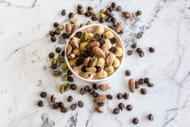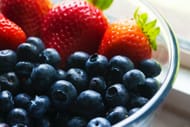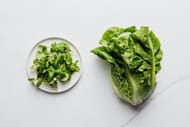Looking for foods for winter blues? Well, there are numerous winter comfort foods you can eat to manage seasonal changes in your mood and body.
The winter season can be gloomy for many people. Short days, less sunlight and not being able to go outside as frequently as in other seasons can make you sluggish and also reduce your energy levels. In fact, many studies claim that changes in seasons, especially during the winter months, can cause depression, elevate emotional eating, and increase cravings for sugary foods, leading to weight gain and other health concerns.
The good news is that eating certain foods can improve your mood and most importantly, improve the way you feel during the chilly winter season. By consuming foods that are loaded with certain nutrients, you can feel significant changes in your mood and energy levels as well.
8 best foods for winter blues
Here are eight of the best foods for winter that are sure to make you happy and keep you active throughout the cold season. Read on.
1. Fish

Fish and other omega-3 fatty acid foods are some of the best foods for winter blues. That’s because omega-3 fatty acids are known to improve the functions of the brain, particularly the cerebral cortex – the part that helps manage happiness and satisfaction.
They also increase the production of dopamine and serotonin, which are both directly linked to mood changes.
2. Nuts

Nuts are another cold-weather food that can work on depression and help improve your mood. Nuts like walnuts and almonds are rich in tryptophan, a type of amino acid known to ease symptoms of depression.
Additionally, nuts are also loaded with magnesium that can help fight fatigue and provide you with great energy to combat winter blues.
3. Fruits

Fruits, particularly berries and citrus fruits are excellent foods for winter blues. The vitamin C in citrus fruits help reduce depression and fatigue and combats mood changes as well.
Berries like strawberries, blueberries and raspberries, on the other hand, prevent cortisol and keep stress and depression at bay. Berries are also filled with folate, also called vitamin B9, which helps in the production of dopamine and serotonin.
4. Sweet potato

Sweet potatoes are the best bet when it comes to keeping your emotional eating and cravings in limit. Eating sweet potatoes, particularly in the winter can help manage your anxiety levels and keep your blood sugar down.
This, as a result, helps combat sugar cravings and unnecessary snacking.
5. Turmeric

Turmeric is also among the best foods for winter blues. Even studies have claimed that this potent ingredient may be as effective as any antidepressant.
Just add turmeric to your veggies and curries or simply go for a hot cup of turmeric tea every day to attain its incredible health advantages.
6. Dark chocolate

Dark chocolate is another mood-boosting, delicious food you can eat to combat winter blues. It is believed dark chocolate can increase serotonin production and work as a natural anti-depressant as well.
Several studies have also found that consuming dark chocolate every day for at least two weeks can help manage stress and anxiety and improve mood.
7. Garlic

Garlic is extremely beneficial for improving your mood. That’s because it helps the body produce more norepinephrine, which is said to reduce anxiety, stress and sadness.
Additionally, it helps the blood vessels to relax and manages blood pressure as well. This, in turn, keeps potential heart problems at bay and helps you stay active and fit.
8. Leafy vegetables

Green leafy vegetables like collards, spinach, and kale are all loaded with vitamin B, which is of utmost importance for the proper functioning of the brain. Studies suggest that vitamin B deficiency can lead to mood disorders, and hence, getting enough of this vitamin is important to keep winter blues away.
These are some of the best foods for winter blues that can help improve your mood, keep you active and keep your bodily functions working at their best during the winter season.
Just remember that the aforementioned foods for winter blues are not a replacement for any depression medication. So, if you have an ongoing health concern or you are on any medicine, make sure you consult your doctor before making any dietary changes.
